- Docente: Fabrizio Aiana
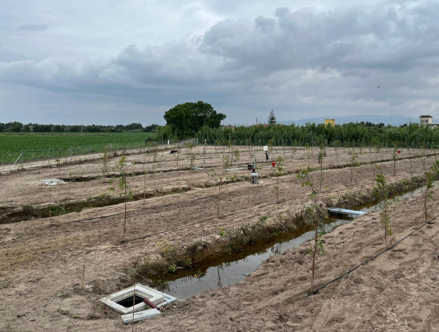
🎯The Forested Infiltration Area (FIA) system aims at mitigating the groundwater nitrate contamination for the shallow sandy aquifer in the Nitrate Vulnerable Zone (NVZ) of Arborea (Italy).
🛠️Implemented by the Desertification Research Center of the University of Sassari in the framework of the international project "Non-conventionAl WAter Reuse in Agriculture in MEditerranean Countries (MENAWARA).
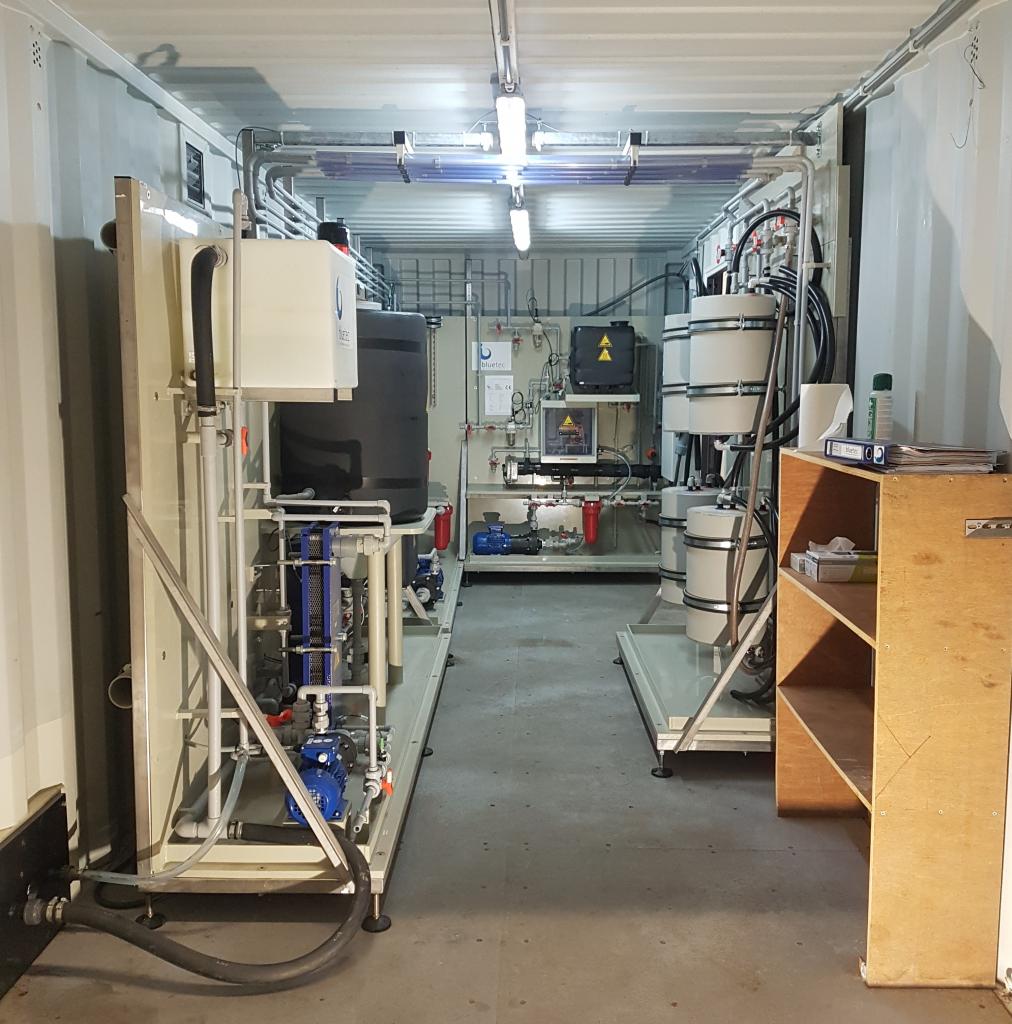
🛠️ Implemented by ENAS (Sardinian Water Authority) and CRENoS (Centre For North South Economic Research of Cagliari University) in the framework of the international project "Mediterranean Integrated System for water Supply” (MEDISS).
🎯 The “green wall” is an innovative system designed to collect, treat and reuse the greywater. The system treats the greywater from the school washbasins and makes it reusable for toilet flushing, thus reducing the consumption of high-quality drinking water.
🛠️ Designed by IRIDRA and built in the Municipalities of Ferla and Tunis within the international project “Nature Based Solutions for Domestic Water Reuse in Mediterranean Countries” (NAWAMED).
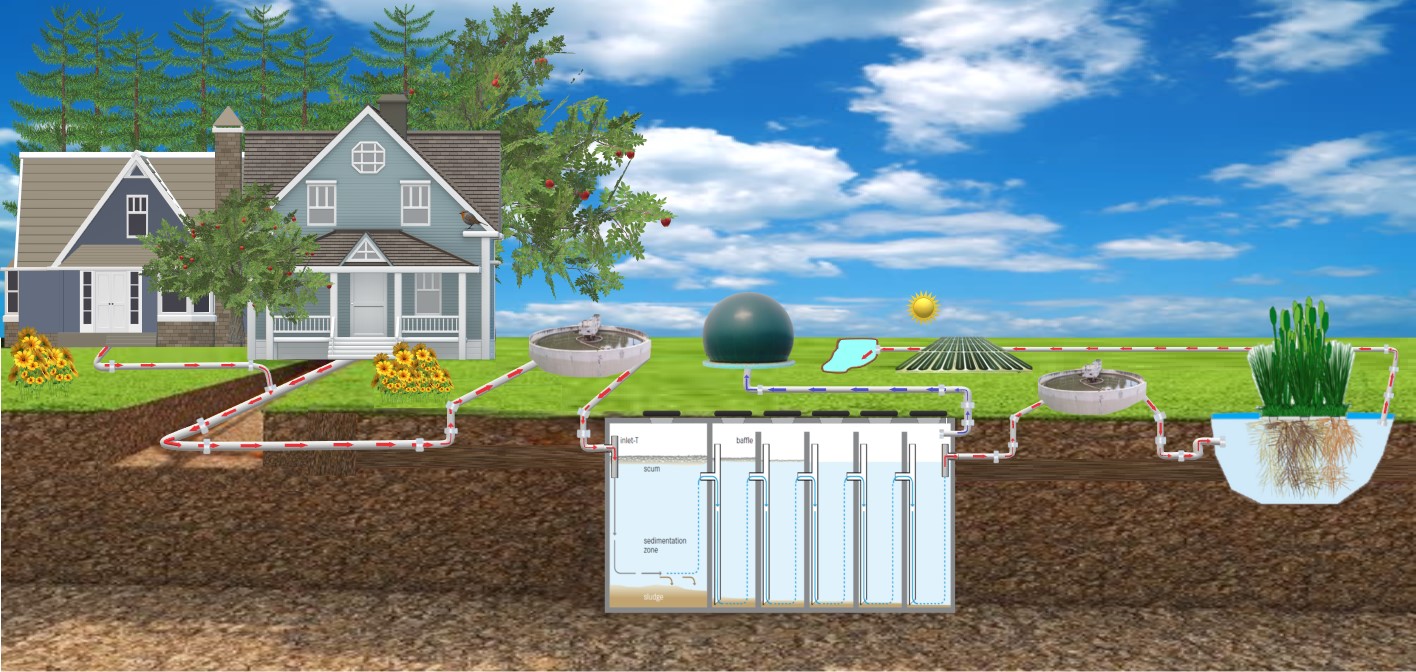
🎯 The APOC system treats wastewater, both black and grey water, mostly at community, or even larger, scale, particularly promising for decentralized treatment implementations.
🛠️ APOC technology is currently validated at demonstration level in operational environment (TRL7) (APOC demo plant of 5 m3/d treatment capacity in Blanca Wastewater Treatment Plant in Murcia, Spain, by ESAMUR). Two further APOC demonstration plants with a capacity of 10-15 m3/d are under construction in the Tripoli region (Deddeh Koura), Lebanon, and Zaghouan (Bent Saidane), Tunisia. The responsible partners are the Lebanese University and the Tunis International Centre for Environmental Technologies (CITET)".
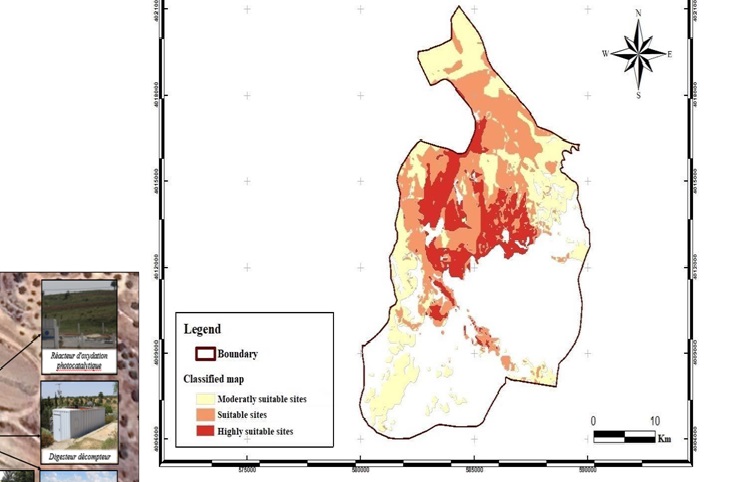
🎯 AHP-GIS based model has been developped to identify potential sites to reuse treated wastewater for the irrigation.
🛠️ Implemented by the Centre de Recherches et des Technologies des eaux in the framework of the international project "Nature Based Solutions for Domestic Water Reuse in Mediterranean Countries" (NAWAMED) in the North-East of Tunisia.
🎯 In a living lab environment, We World Onlus-GVC, supported by all relevant stakeholders, tested improved irrigation systems supplied with treated wastewater (TWW) of better quality thanks to the rehabilitation of its Waste Water Treatment Plant to increase the production of lemon, olives, grapes and fodder. In Palestine, a governance model has been built that, thanks to the living lab approach, is impacting the perception of reuse to public officials and population.
🛠️Implemented by We World-GVC Onlus, strongly supported by the Mediterranean Agronomic Institute of Bari (CIHEAM BARI), in Beit Dajan (Nablus), Palestine, in the framework of the Non-conventional WAter Reuse in Agriculture in MEditerranean countries (MENAWARA).
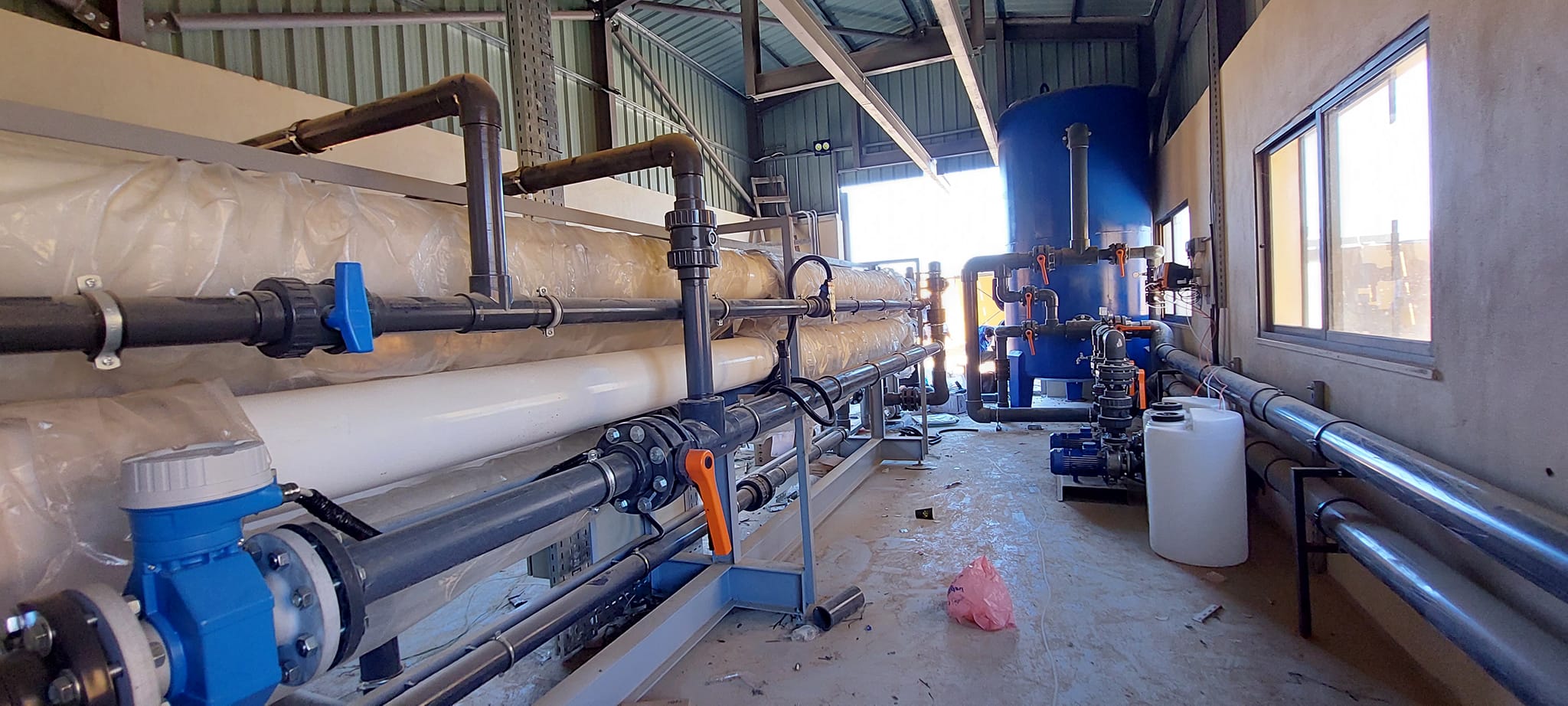
🎯 Desalination plant of brackish groundwater, extending membrane’s lifetime with innovative treatment and using photovoltaic panels for energy supply.
🛠️ Implemented by Palestinian Wastewater Engineers Water Group in Wadi Araba, Jordan, in the framework of the international project "Mediterranean Integrated System for Water Supply" (MEDISS) funded by the ENI CBC Med programme.
🎯 The system allows to save more than 30% of irrigation water for forage crops (no evaporation from the soil surface ) and increase the production by 25% in comparison with surface irrigation with no pathogen contaminations.
🛠️ Implemented by the National Agricultural Research Center in Ar-Ramtha (Irbid), Jordan in the framework of the internation project "Non-conventionAl WAter Reuse in Agriculture in MEditerranean Countries" (MENAWARA).
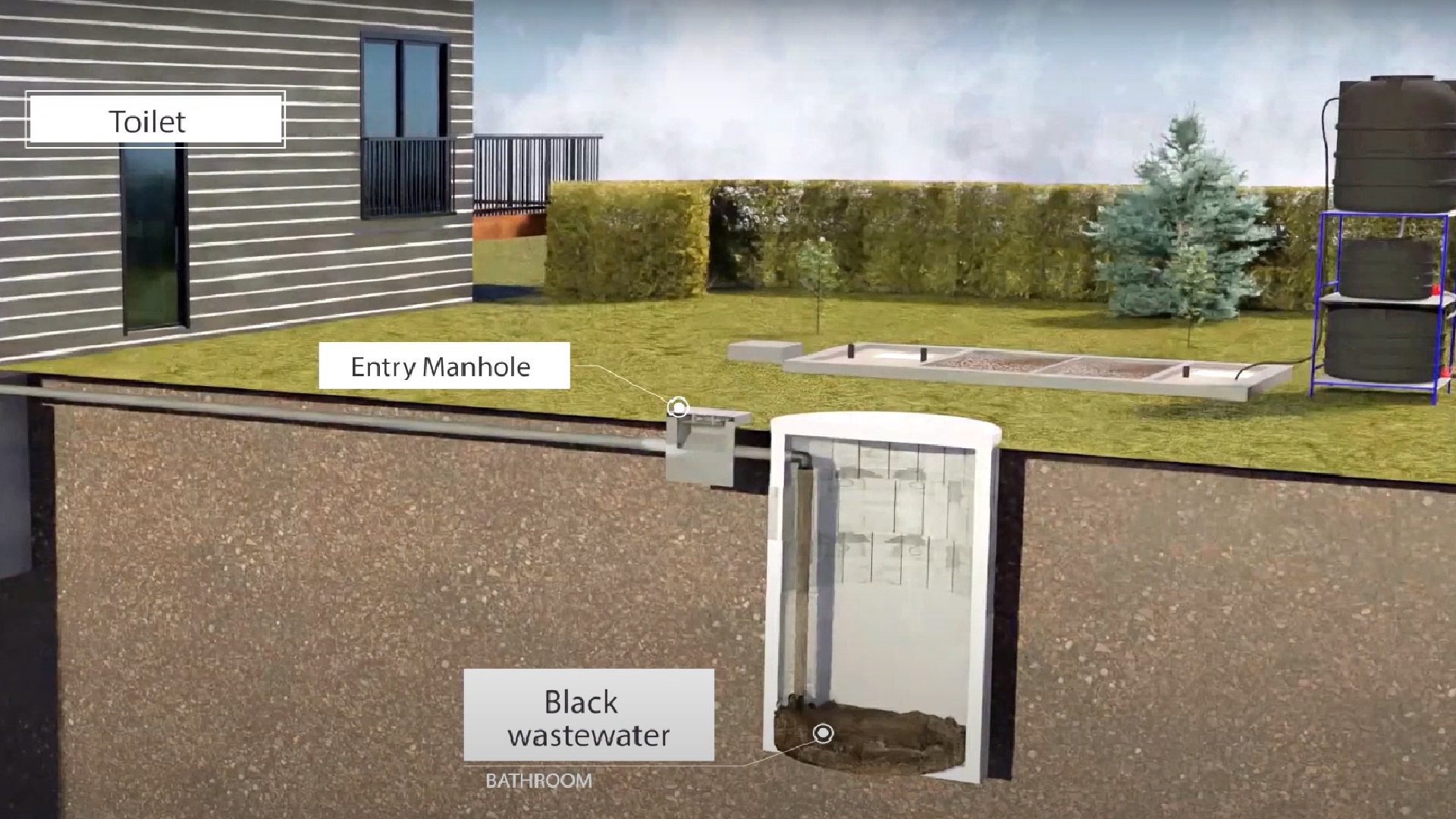
🎯 Low Cost and Low Technology decentralized Wastewater Management using grey wastewater treatment including kitchen waste and treating black wastewater by modified septic tank.
🛠️ Implemented by Palestinian Wastewater Engineers Group in the framework of the international project "Mediterranean Integrated System for Water Supply" (MEDISS), in Jericho, Palestine.
🎯 Re-utilisation of rainwater harvesting cisterns located within Cottonera for secondary water use, such as public cleaning of roads and irrigation of gardens.
🛠️ The restoration process has been carried out by The Energy and Water Agency (EWA), in the framework of the Alter Aqua project.
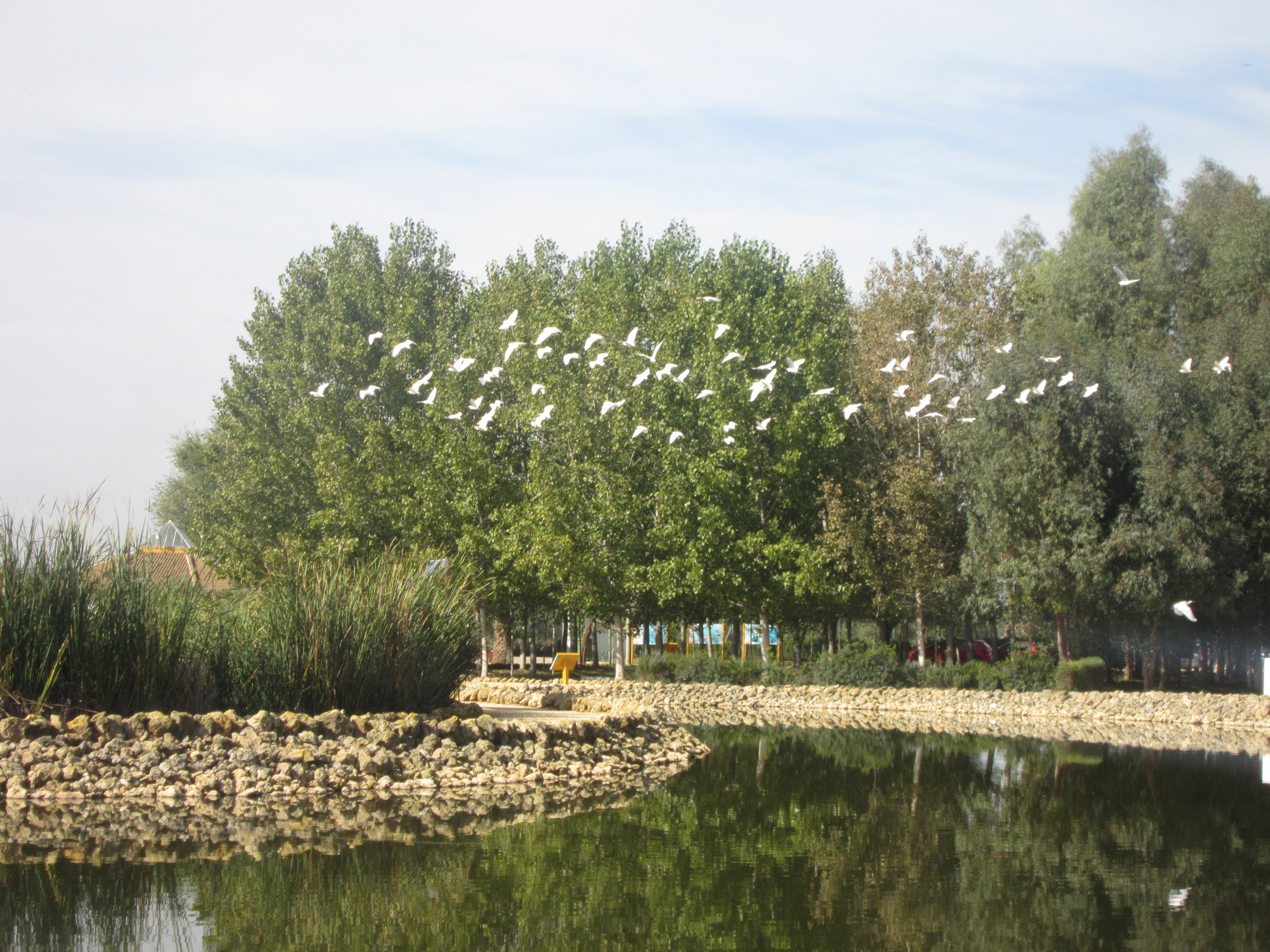
🎯 Innovative Constructed Wetlands (CW) have been included in the treatment train to improve the wastewater treatment processes according to the "fit for purpose" principle including technical solutions allowing reconciling the requirements of low cost and simplicity in the O&M, while guaranteeing safe water quality for public health and the environment and giving priority to aspects related to sustainable development and the circular economy.
🛠️Implemented by AMAYA (Agencia de Medio Ambiente y Agua), in the framework of the MENAWARA project
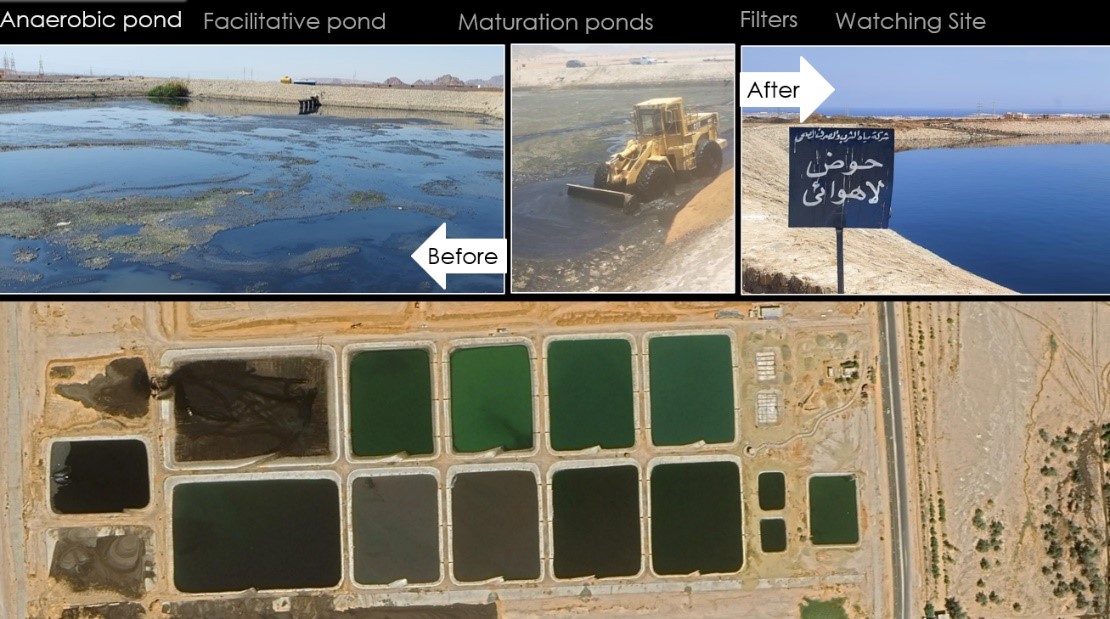
🎯 The rehabilitation and development
of the sewage treatment ponds aims at protecting soaring birds from poisoning converting wastewater pond into a bird-friendly resting wetland.
🛠️ Implemented in Sharm el-Sheikh, Egypt
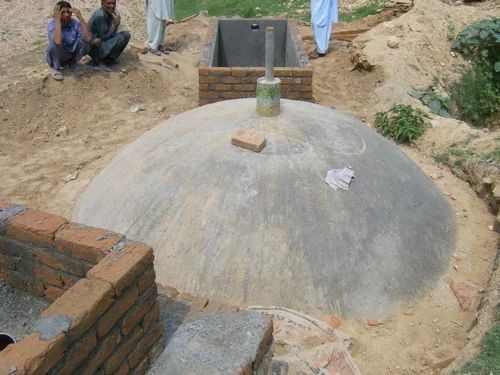
🎯 Biogas plant aims at providing renewable energy to households for cooking as well as producing organic fertilizer that improves the properties of the soil.
🛠️ Implemented in the Kafr el-Sheikh governorate, Egypt
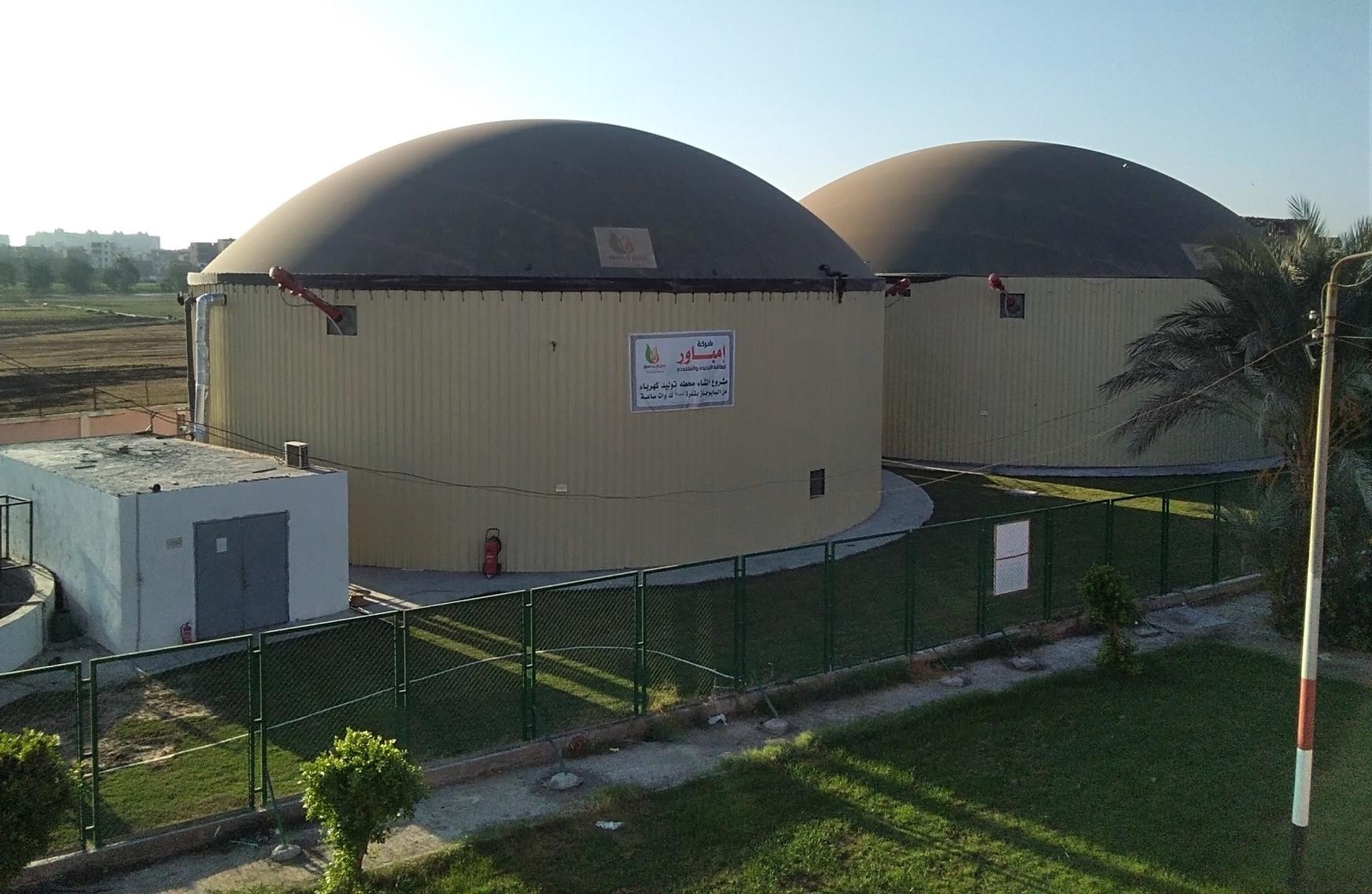
🎯 Sakha treatment plant supplies recycled water for landscape irrigation and recovers the sewage sludge at the same plant to extract fertilizers and biogas. The combustion of biogas produces a large amount of the electricity needed to run the plant or to be sold to the local grid.
🛠️ Implemented in Kafr el-Sheikh governorate by Empower company in the framework of a public-private partnership with the Egyptian Governament.
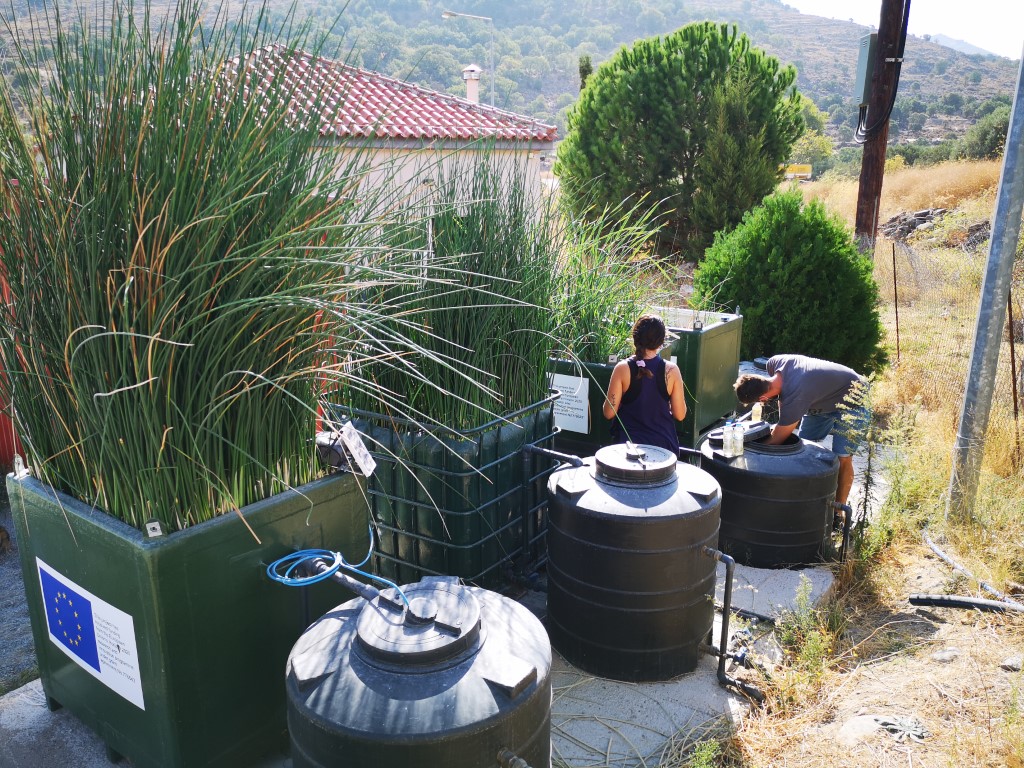
🎯The circular wastewater treatment system is applied in decentralised areas with high seasonal loads. It combines anaerobic processes with constructed wetlands and disinfection to treat domestic wastewater as a completely circular solution where water, nutrients and the produced sludge are reused.
🛠️Implemented in Lesvos island in the framework of the Hydrousa project funded by Horizon 2020 Programme

🎯 In order to engage stakeholders and promote social learning, a Sardinian traditional form of conflict resolution has been used to translate the complexity of water-related conflicts in a modern key by adopting theatrical techniques.
🛠️ Implemented by the Desertification Research Center of the University of Sassari (NRD-UNISS) in the framework of the CADWAGO and MENAWARA projects.
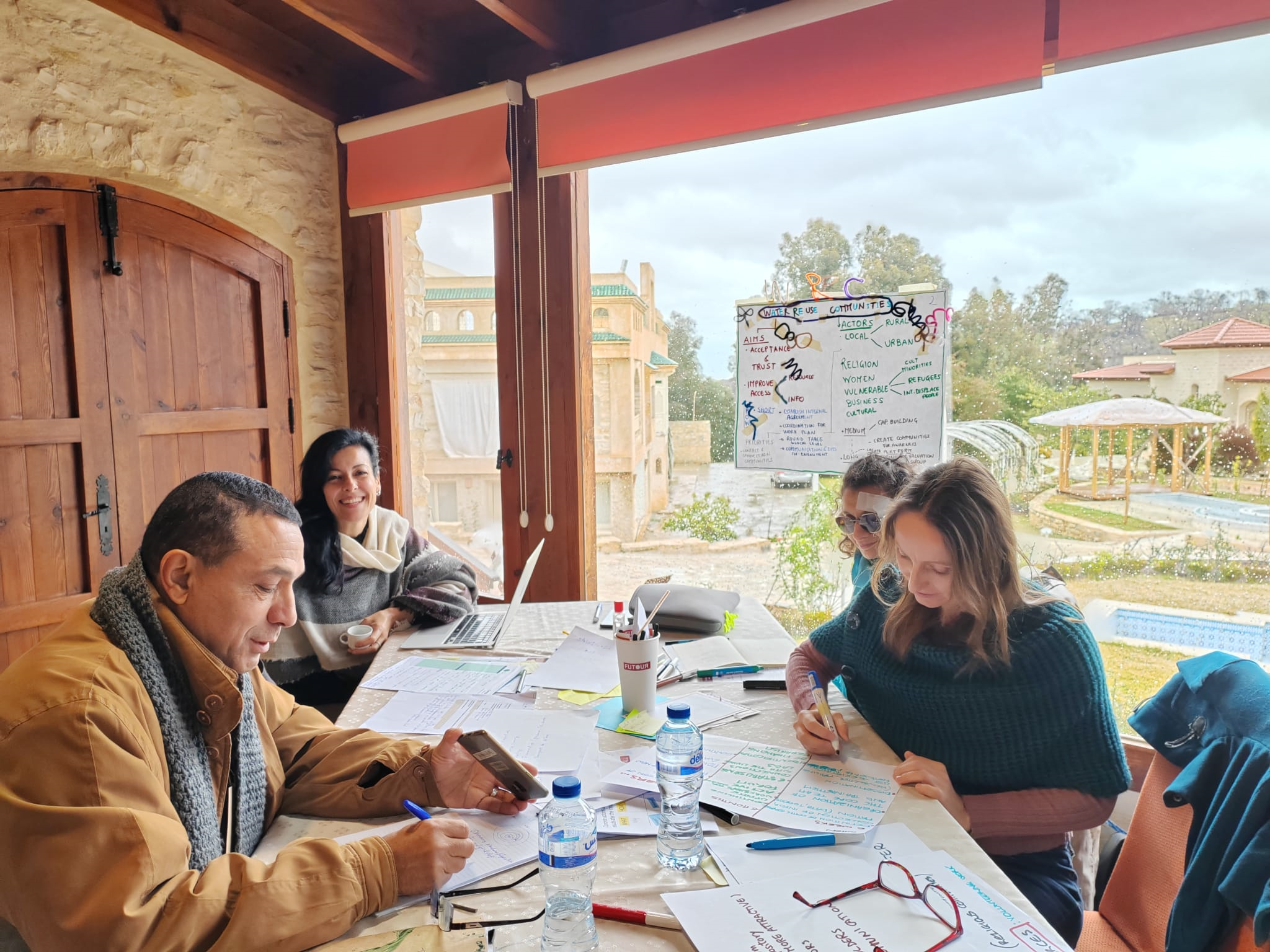
🎯Living Labs aim at pooling knowledge from as many (willing) participants as possible for generating best possible solutions respectively innovations. Their core element is the network formed of public and private stakeholders who jointly develop and test new technological developments within the framework of an open innovation process (Wiederwald et al. 2017).
🛠️Implemented by CIHEAM BARI in the framework of the MENAWARA project
